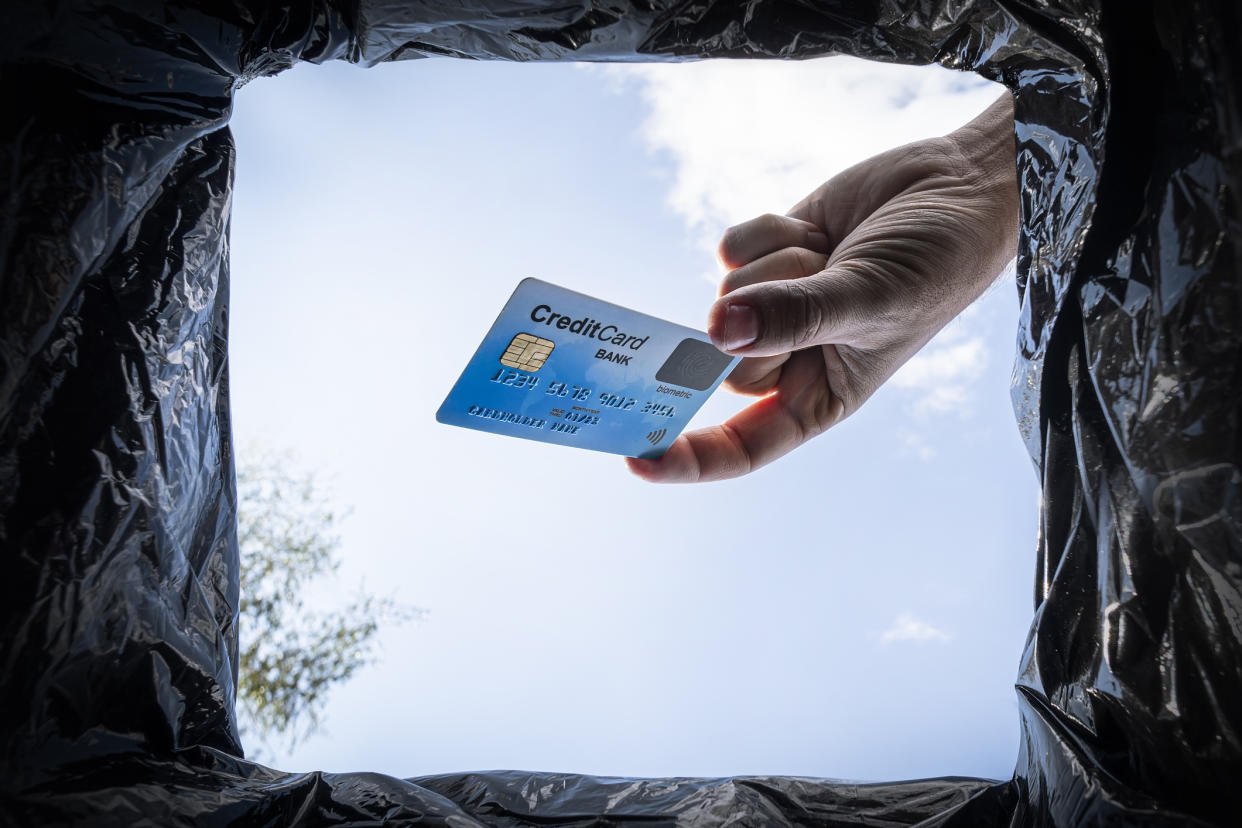Why You Don’t Actually Need a Credit Card To Raise Your Credit Score

Credit cards have long been a popular payment option for American consumers, and that was never more true than in 2023. Roughly 82% of U.S. adults have at least one credit card, according to the Government Accountability Office. This past summer, the combined balances of all those cards passed $1 trillion for the first time ever.
One reason credit cards are so popular is that they help millions of Americans establish credit for the first time and build and improve their scores through timely payments.
More: 6 Ways To Build Wealth Slowly but Efficiently
Next: Pocket an Extra $400 a Month With This Simple Hack
That doesn’t mean you necessarily need a credit card to build or improve your credit, however. Numerous other options are available that can accomplish the same thing — with much less risk.
How to Raise Your Credit — Without a Credit Card
Interested in establishing or improving credit without a credit card? One option is to use a credit-building tool such as Instal by CreditStrong, which can help improve your credit score in a short amount of time. The idea is simple: Instal will issue you a $1,000 secured loan, which means the funds will be secured away so you don’t have immediate access to them.
Each month, you’ll make payments toward the loan. CreditStrong reports the payments to the three major credit bureaus, which helps improve your credit score.
Instal also comes with free monthly access to your FICO score so you can closely monitor progress toward your credit score goals. Once you’ve paid off the full amount, the account is unlocked and you can withdraw the money. Your account will also be reported as paid-in-full with a $0 balance. Anyone can qualify — even those with no credit.
What Determines Your Credit Score
While you’re taking advantage of the Instal credit-building tool, it’s also a good idea to familiarize yourself with what goes into a credit score. The two main credit scores are the FICO score and VantageScore. Here’s how FICO scores break down, from best to worst:
800 or higher: exceptional
740-799: very good
670-739: good
580-669: fair
579 or lower: poor
The higher the score, the better your chances of being approved for a loan and other types of credit. Your chances of approval fall dramatically for scores below 670. If your score is 579 or lower, you’ll have a hard time getting approved for anything unless you put down a deposit or find a co-signer.
FICO has five factors that contribute to your credit score, each of which is weighted differently:
Payment history: 35%
Amounts owed: 30%
Length of credit history: 15%
New credit: 10%
Credit mix: 10%
VantageScore 3.0 has six factors:
Payment history: 40%
Depth of credit: 21%
Credit utilization: 20%
Balances: 11%
Recent credit: 5%
Available credit: 3%
Other Ways to Build Credit
Another effective way to raise your credit score without a credit card is to open up other forms of credit, such as personal lines of credit or home equity lines of credit. The key here is to keep your credit utilization percentage low, according to Sebastian Jania, owner of Ontario Property Buyers, a real estate solutions and investment company.
“The effect that would have on one’s credit score is that the credit utilization would be incredibly low,” said Jania. “Also, the individual would be proving that they can manage large sums of credit, which would directly contribute to their credit score. Getting a personal loan or auto loan can help you build credit and quickly raise your score.”
Rental payments can also be used to boost your credit score — if they’re reported to the three major credit bureaus (Equifax, Experian and TransUnion). Check with your landlord or property manager to see if they report rental payments to the credit bureaus. If so, you can improve your credit score by paying your rent on time and in full every month.
Here are a couple of other ways to raise your score without a credit card:
Sign up for a phone plan: Getting a phone plan in your name is a quick way to start building and improving your credit. Again, you want to ask the phone company if it reports payments to the credit bureaus. Also, make sure you have the financial wherewithal to afford a phone plan before applying. If you get rejected, it could reflect negatively on your credit. You might also get hit with a hard inquiry when you apply, which could temporarily lower your credit score.
Apply for a credit-builder loan. This is similar to a secured credit card, which requires cardholders to make a cash deposit when they open an account. The difference is, a credit-builder loan comes in the form of an installment loan rather than a card. The good news is, payments you make with this option are reported to the credit bureaus, which helps you build credit and raise your credit score through timely payments.
More From GOBankingRates
I'm a Financial Expert: Here's How You Can Save $10K or More in the Next Year
How to Get $340/Year in Cash Back -- for Things You Already Buy
4 Reasons You Should Be Getting Your Paycheck Early, According to An Expert
10 Ways to Turn Your Six-Figure Salary Into Generational Wealth
This article originally appeared on GOBankingRates.com: Why You Don’t Actually Need a Credit Card To Raise Your Credit Score
